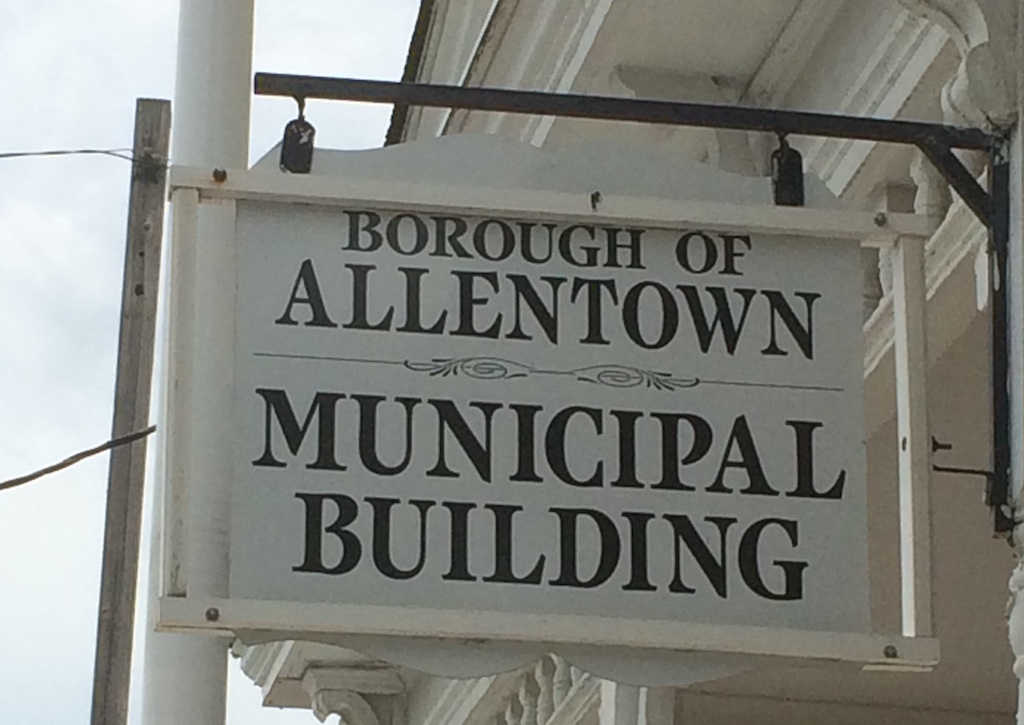ALLENTOWN – The Allentown Borough Council has introduced a $2.98 million budget to fund the operation of the municipality during 2020.
The budget that was introduced during the council’s March 24 meeting does not include an increase in the municipal tax levy from 2019 to 2020.
The council meeting was live-streamed as the coronavirus outbreak continued to spread throughout New Jersey. Mayor Thomas Fritts was joined in the meeting room at Borough Hall by municipal clerk Laurie Roth.
Council President Robert Strovinsky, Councilwoman Angela Anthony, Councilwoman Martha Johnson, Councilman John A. Elder III, Councilman Michael Drennan, Councilman Dan Payson and Chief Financial Officer June Madden participated in the meeting by telephone.
All six council members voted “yes” on a motion to introduce the budget.
This year’s $2.98 million budget will be supported by the collection of $1.58 million in a local tax levy from Allentown’s residential and commercial property owners.
Municipal officials will use $566,000 from surplus funds as revenue in the budget and expect to receive $131,595 in state aid. The remainder of the borough’s revenue in 2020 will come from grants and miscellaneous revenues.
When the 2020 budget was initially developed by borough officials and Madden, the spending plan proposed an increase in the municipal tax rate of 7.5 cents per $100 of assessed valuation, according to Fritts.
When Madden discussed the budget during a Feb. 25 council meeting, she reported that the projected increase in the municipal tax rate had been revised downward to 3.5 cents per $100 of assessed valuation.
Then the coronavirus outbreak hit hard and, Fritts said on March 24, “We had to go back to the drawing board because of the current situation with residents and businesses being hit. We looked at every line item to cut costs.”
To keep the $1.58 million tax levy flat from 2019 to 2020, officials increased the amount of surplus funds to be used as revenue in the budget this year from a projected $500,000 to $566,000.
The appropriation of the additional $66,000 from surplus funds eliminated the anticipated 3.5-cent increase in the municipal tax rate. Allentown’s municipal tax rate will hold steady at about 82 cents per $100 of assessed valuation.
Madden said that in 2019, the average home in Allentown was assessed at $290,842. With a tax rate of 82 cents in place, the owner of that home paid about $2,384 in municipal taxes.
In 2020, the average home in Allentown is assessed at $291,600, according to Madden. With a tax rate of 82 cents in place, the owner of that home will pay about $2,391 in municipal taxes, an increase of $7.
Municipal taxes are one item on a property owner’s total tax bill. Allentown property owners also pay Upper Freehold Regional School District taxes and Monmouth County taxes.
The amount an individual pays in property taxes is determined by the assessed value of his home and/or property and the tax rate that is set by each taxing entity.
Allentown’s municipal budget for 2019 totaled $2.48 million and was supported by the collection of $1.58 million in taxes from residential and commercial property owners. Other revenue in the budget included $375,000 from surplus funds and the receipt of $131,595 in state aid.
“When I was elected mayor (in November 2019), I made a promise to our residents to reduce costs and lessen the tax burden,” Fritts said following the March 24 meeting.
“Our Finance Committee, which is Councilman Drennan, who chairs the committee, Councilman Payson and myself, started the budget process in January and based on all additional costs and increases, we were looking at an approximate 7-cent increase (in the municipal tax rate).
“The committee spent many hours reviewing areas to reduce costs by looking at multiple year averages in lines where budgeting was consistently higher than actual costs.
“Those items were reduced to fall more in line with actual cost vs. over-budgeting at the taxpayers’ expense. We managed to save well over $100,000 by doing that. We brought the budget down to a roughly 3-cent increase (in the municipal tax rate) and started over.
“In the end, we were able to formulate a budget to maintain a flat tax levy ($1.58 million) from 2019 to 2020. Our residents and business owners are suffering right now and we hear them loud and clear. Our community is looking for relief anywhere we can offer it,” Fritts said.
A public hearing on the budget is scheduled for the council’s April 21 meeting.
Due to public health concerns over the COVID-19 outbreak, all council meetings scheduled for April and May will be physically closed to the public and will be live-streamed on Facebook at 7 p.m. (April 7, 21, May 12, 26).
When it is time for public comment, the mayor will ask for public comment. Viewers to the live-stream will be able to submit their comments by typing them into the comments box in the live feed.
For more information, contact Municipal Clerk Laurie Roth at [email protected]

